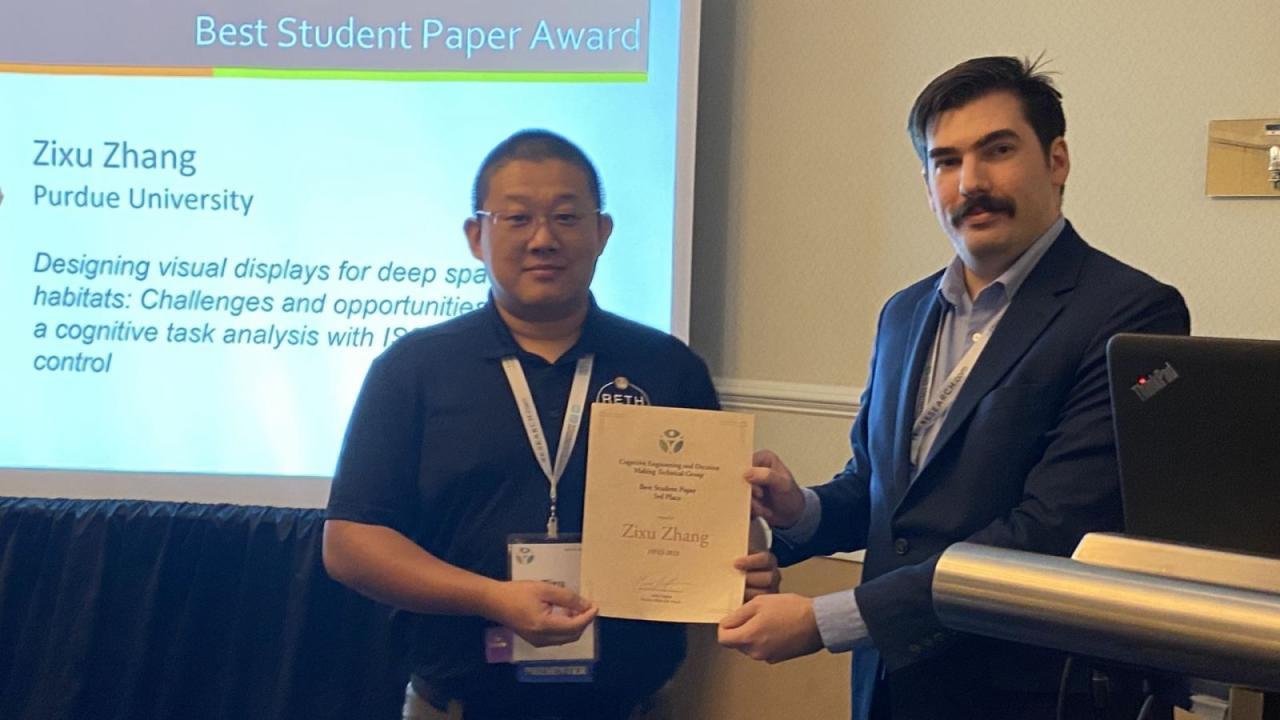Zixu Zhang, a PhD student in the technology program at Purdue Polytechnic, has received notable recognition by earning third place from over 600 entries in the Cognitive Engineering and Decision Making Technical Group student paper competition. This competition was held at the 67th International Annual Meeting for the Human Factors and Ergonomics Society (HFES).
HFES is the world’s largest scientific association for human factors and ergonomics professionals. This particular group within HFES attracts many competition entries, as well as a diverse audience of interested stakeholders from academia, government and industry.
Zhang's paper, developed in collaboration with faculty advisor Paul Parsons, associate professor of computer graphics technology at Purdue Polytechnic, focused on the unique challenges of designing visual interfaces for deep space habitats, using the much lower-orbit International Space Station (ISS) as a counterexample. Visual interfaces are pertinent in addressing unavoidable communication delays and other obstacles encountered in space missions, particularly those that are farther from earth than a facility like the ISS.
“This award is a testament to the hard work Zixu has done on this project, and the innovative work happening in the Polytechnic and across Purdue,” Parsons said. “It is also a testament to the excellent interdisciplinary work being done in the Resilient Extra Terrestrial Habitats Institute headquartered at Purdue. I’m proud to see Zixu being recognized alongside top early-career researchers in cognitive engineering and decision making.”
Parsons also highlighted Purdue’s significant contributions to aerospace research and its collaboration with NASA, which were instrumental in Zhang’s study. “Purdue has strong connections with the aerospace industry and with NASA, and this allowed us to work with key personnel in NASA mission control to understand more about how decision making is done in complex sociotechnical settings,” he added.
Zhang’s research is particularly focused on space exploration and human-technology interaction. Its interdisciplinary applications and innovative approaches also align Zhang’s work with Purdue Polytechnic’s overall research goals, as the college’s major impact areas seek to “stimulate multi-disciplinary collaboration … to provide innovative and use-inspired solutions.”
Additional information

